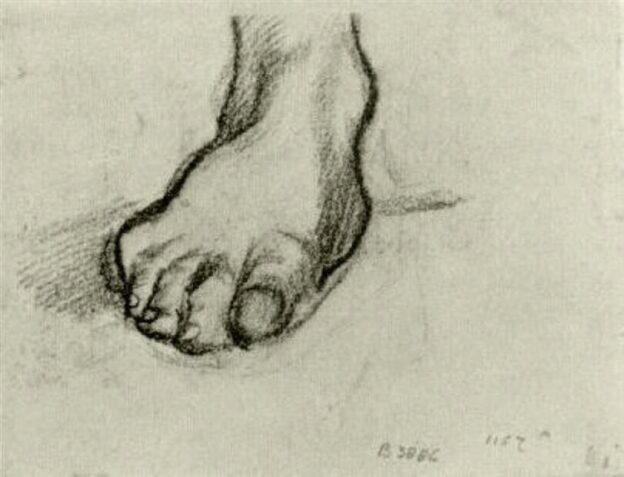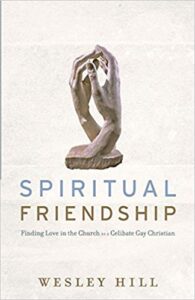“I’m pregnant!”
The announcement demands a response. At times the response is easy: There are hugs and cheers, whoops, whirls, and texts—the group kind. At times the response is complicated: There are glances and glares, winces, wails, and tears—not the good kind.
When a baby is a dream come true, the announcers set to painting a room, taking vitamins, writing letters, scheduling appointments, arranging photos, and purchasing a range of clothes…and bins—lots of bins—to house the clothes. The list feels endless. A baby is the natural tangible expression of marital love. Pregnancy is welcome news.
Tragically, a baby may be the opposite of a dream come true. For some, a baby may be a nightmare. Far from an expression of marital love, a baby may be evidence of secret infidelity, sexual abuse, rape, and impulsive action. Pregnancy may not feel like a delight, but a verdict.
Whether welcome or wished-it-wasn’t-so, a baby is revealing. The baby brings revealing light to the emotional strength, financial capacity, planning ability, and relational health of a life. A baby reveals the order (or chaos) of a house. A baby reveals a home’s priorities and values. Trying to welcome a baby into life and home without making adjustments is impossible. You can’t ignore the baby. There is new work, new responsibilities, and new demands.
While the Annunciation, Gabriel’s announcement to Mary that she will conceive a child by the Holy Spirit, reminds Christians that a baby is on his way, Advent provides a time of preparation for his arrival. No longer can important tasks be put off. He’s on his way. Like expectant parents, churches and church members focus on making announcements, building floats, practicing and performing dramas, purchasing and distributing gifts. But we ought not ignore everything that Jesus’ birth revealed. It was not taken as easy celebration but as serious news. His birth could not be treated neutrally. Just as a baby reveals the state of the home, so did Jesus’ birth reveal the state of his world.
- Just as a baby reveals the home’s priorities, Jesus’ birth forces us to attend to our priorities. His birth exposes idolatry—the sin of placing anything before God. Do the priorities in our lives reflect God’s primacy in our love and devotion? Just as a baby must be loved in proper order, so must God order everything else in our lives.
- Just as a baby cannot be ignored in its home, Jesus’ birth forces us to attend to the rhythm of our lives. His birth exposes our folly—the sin of crafting a life without God. Have we ignored God? How have we constructed lives without God?
- Just as a baby brings new responsibilities and work, Jesus’ birth forces us to attend to our willingness to do the work given us by God. His birth exposes our penchant to sloth—the sin of refusing our God-given work. Are we giving our best to the work done by the will of God? Are we taking up our divinely ordered tasks?
Just as baby reveals my life’s priorities, constructions, and discipline, so does the birth of Jesus offer a judgment on my idolatry, folly, and sloth. Advent gives me time to prepare for that judgment.
Judgment on idolatry, folly, and sloth? No wonder people might not consider the birth of this baby Good News! But it actually is. If you have ever lived in a home, worked in an organization, invested in a community, or had a meaningful partnership that was marked with disorder, intentional ignorance, and laziness, then you know that judgment is, possibly, Good News. Proper judgment establishes order, wisdom, and meaningful work.
But the news of order, wisdom, and work is only good news if the one bringing judgment is of a certain character. The form taken in the manger reveals to us the heart of the judge. He would grow to be the one who would weep these prophetic words of warning, “Jerusalem, Jerusalem, the city that kills the prophets and stones those who are sent to it! How often have I desired to gather your children together as a hen gathers her brood under her wings, and you were not willing! See, your house is left to you, desolate” (Matt. 23:37-38a). He weeps because Jesus’ words have a finality. His warnings have not been heeded and the ultimate symbol of his judgment will be the destruction of the temple as predicted in the very next chapter, Matthew 24.
But while the temple will be brought down, the personal houses of the disciples may still be guarded. “Keep watch!” “Stay awake!” or even “Wake up!” commands Jesus (Matt. 24:42). May your house be found in order! Advent is not simply an invitation to set our houses in order for his birth. Advent is an urgent opportunity to set our houses in order for Jesus’ return. By taking the opportunity to rightly order our lives, we may anticipate the glorious return of Jesus joyfully. His coming judgment will not be feared if we accept his present judgment against idolatry, folly, and sloth—even our own.
The liturgical calendar, in its wisdom, has given us Advent, complete with its call to prepare for judgment. Advent is like an alarm clock. The alarm clock’s obnoxious noise is not bad news! If properly set and attended, the alarm clock wakes us up to keep our lives well ordered, to keep us on time. The alarm clock is not bad news; it is the opportunity to prepare. Advent’s warning of judgment is not bad news; it is the opportunity to prepare for Christ’s return. Advent is an annual alarm clock, set to go off and remind us that a baby is coming and so we must be prepared. The baby will reveal the state of our house.
And if we prepare, then just as many heard the news of his birth as gospel, so will we anticipate his return with similar hope. Advent’s alarm clock is ringing. Are you awake? Are you alert?










 Much of the work of this conference is based on the thinking and writing of New Testament scholar and Anglican celibate gay Christian Dr. Wesley Hill, who has authored
Much of the work of this conference is based on the thinking and writing of New Testament scholar and Anglican celibate gay Christian Dr. Wesley Hill, who has authored